1918
Shortly after the Armistice of 1918, the Council of the University College of Wales, Aberystwyth received a letter from David Davies of Llandinam and his sisters Miss. Gwendoline Davies and Miss. Margaret Davies. The letter informed the Council that the Davies family were prepared to contribute the sum of £20,000 as an endowment of a chair in Aberystwyth ‘in memory of the fallen students of our University for the study of those related problems of law and politics, of ethics and economics, which are raised by the prospect of a League of Nations and for the truer understanding of civilisation other than our own. |
 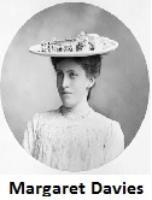  |
1919
The Department of International Politics, the first of its kind in the world, is founded at the University College of Wales, Aberystwyth. The inaugural holder of the Woodrow Wilson Chair of International Politics is Alfred Zimmern. The department has just two staff, Zimern and fellow lecturer Sydney Herbert.
|
|
1922
Charles Kingsley Webster becomes the second Woodrow Wilson Chair of International Politics at University College of Wales, Aberystwyth. A Liverpudlian and graduate of King’s College, Cambridge, he was appointed to the Chair of Modern History at Liverpool University in 1914. He held the Wilson Chair until 1932, before coming the first holder of the Stevenson Chair of International History at the London School of Economics. Webster had been on the staff of the British delegation to the Paris Peace Conference in 1919 and was a delegate to the San Francisco Conference in 1945, which founded the United Nations. He was knighted in 1946 and was President of the British Academy between 1955 and 1958.
|
 |
1932
Jerome Davis Greene is appointed the third Woodrow Wilson Chair of International Politics at University College of Wales, Aberystwyth. An American businessman born in Japan, he held a multitude of prestigious posts during his career. He was Secretary to the Corporation, Harvard University (1905-1910 and 1934-1943); Joint Secretary if the Reparations Committee at the Paris Peace Conference; Chairman of the American Council Institute of Pacific Relations and Trustee of the Brookings Institution of Washington (1928-1945).
|
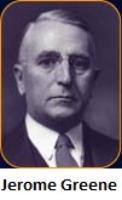 |
1936
E.H. Carr becomes the fourth Woodrow Wilson Chair of International Politics at University College of Wales, Aberystwyth. Later to become an acclaimed Sovietologist and international relations scholar, Aberystwyth was Carr’s first academic post following a successful career in the diplomatic service. It was during his time at Aberystwyth that Carr wrote perhaps his most famous book The Twenty Years Crisis, published in 1939. Considered a classic in international relations theory and dubbed one of the first modern realist texts, the ideas he espoused within his work were starkly incongruent with those of the founder of his chair, David Davies. Leaving the department in 1947, Carr went on to lecture at Oxford University where he published another classic, this time in the field of historiography: What is History?.
|
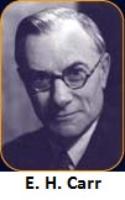
|
1950
P.A. Reynolds becomes the fifth Woodrow Wilson Chair of International Politics at University College of Wales, Aberystwyth. After completing his war service (1940-1946) as a Major, Reynolds lectured at the London School of Economics for four years. As well as holder of the Wilson Chair, Reynolds was Vice Principal of the University between 1961 and 1963. After leaving Aberystwyth, he became Professor of Politics (1964-1979) and Vice-Chancellor (1979-1985) at Lancaster University.
|
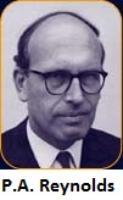 |
1956
The Department of International Politics awards its first Ph.D. to a woman, Elizabeth Joan Parr.
|
|
1957
Joint Honour Degree schemes in International Politics are offered for the first time. Until this stage, the Department offered only modules for students studying other subjects.
|
|
1962
John C. Garnett is appointed the UK’s first lecturer in Strategic Studies, a move in keeping with Aberystwyth’s pioneering status in the field of International Politics. Just five years later, the Department introduces a dedicated Master’s degree to the subject.
|
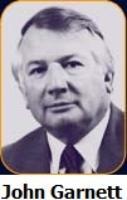 |
1963
The first cohort of students graduate from the University College of Wales, Aberystwyth with a Single Honours Degree in International Politics.
|
|
1964
The Department moves from its original seafront home (next to the Old College) to the Llandinam Building on Penglais campus.
Laurence W. Martin becomes the sixth Woodrow Wilson Chair of International Politics at University College of Wales, Aberystwyth. Martin took his first degree at Christ’s College, Cambridge, before crossing the Atlantic to study for his PhD at Yale University. He held posts at Yale, the Massachusetts Institute for Technology and John Hopkins University, before being appointed to the Wilson Chair. After leaving the department in 1968 he went on to become Professor of War Studies, King’s College London (1968-1977), Vice-Chancellor at the University of Newcastle (1978-1990), and Director of the Royal Institute of International Affairs (1991-1997). He was knighted in 1994.
|
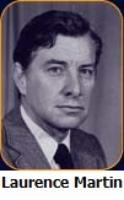 |
1965
The Department of International Politics hosts its initial Crisis Game, the first in the UK, and an event that continues to this day.
|
|
1969
Trevor E. Evans becomes the seventh Woodrow Wilson Chair of International Politics at University College of Wales, Aberystwyth.Evans was educated at Balliol College, Oxford and Hamburg University. He joined the Foreign Office in 1937 and after over thirty years of almost continuous service in the Middle East, he was appointed Her Majesty’s Ambassador to Algiers, Damascus and Baghdad successively. He left the diplomatic service in 1969 upon his appointment to the Wilson Chair, which he held until his sudden death in April 1974.
The Department of International Politics celebrates its 50th Anniversary. The event was marked by a landmark conference at Gregynog Hall, ancestral home of David Davies, which was attended by some of the leading academics in the study of international politics including: Hans J. Morgenthau, E.H. Carr, Charles Manning and Sir Herbert Butterfield. The discussions that took place at Gregynog were later published in The Aberystwyth Papers: International Politics 1919-1969 |

|
1974
Ieuan G. John becomes the eighth Woodrow Wilson Chair of International Politics at University College of Wales, Aberystwyth. John was educated at the London School of Economics and Sir Alfred Zimern’s Graduate Summer School in Geneva. He joined the Royal Navy in 1940, later taking part in the Normandy landings in 1944. He later served as Chief Interpreter and Intelligence Officer on the staff of British Flag Officer in Command Wilhelmshaven Naval Base, 1945-46. He was appointed to the Department in 1946 by E.H. Carr, being promoted to Senior Lecturer in 1964 and finally to the Chair in 1974. He was awarded the title of Emeritus Professor upon his retirement in 1981.
|
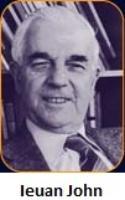 |
1981
John C. Garnett becomes the ninth Woodrow Wilson Chair of International Politics at University College of Wales, Aberystwyth. Garnett received degrees from the London School of Economics before being appointed to the Department in 1962. He was an academic consultant at the Joint Services Defence College and a member of the Council of the Royal United Services Institute. He was the British representative on the United Nations Advisory Board on Disarmament Studies and was a member of the Foreign Office Advisory Panel on Arms Control and Disarmament. He was Head of Department until 1995 but held the Chair until 1997.
|
|
1991
The Department moves to the Edward Llwyd Building on the Penglais Campus.
|
|
1994
The Department of International Politics celebrates its 75th anniversary. Just like the 50th anniversary, the event was marked by a conference attended by the leading academics in the field of international politics. The discussions that took place were published two years later in the book International Theory: Positivism and Beyond.
|
|
1995
Steve Smith becomes Head of the Department after joining the university from the University of East Anglia. He was the first head not to be a holder of the Wilson Chair and steered the department towards research excellence and graduate studies. In 1999 he became Senior Pro Vice-Chancellor (Academic Affairs) and was appointed Vice-Chancellor of Exeter University in 2002. He was President of the Universities UK (UUK) from 2009-2011 and was knighted in the 2011 Queen’s Birthday Honours for services to Higher Education.
|
 |
1996
RAE 1996: The department scores a 5 in the UK Research Assessment Exercise 1996 and lies 5th equal in the top 10 assessments among 39 UK-wide Politics and International Studies departments.
|
|
1997
The Department establishes the Institute of Welsh Politics. The IWP is widely acknowledged to be pre-eminent in the study of Welsh politics, and is internationally recognised as an important research centre on political regionalism and sub-state nationalism.
|
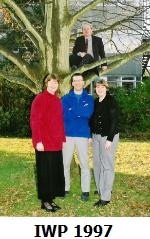 |
1999
EH Carr chair is inaugurated. The Chair recognises excellent scholarship in international relations associated with critical theorizing and with contemporary international history.
Ken Booth is the first holder of the EH Carr chair and becomes Head of Department.
Ian Clark is elected a British Academy Fellow.
|
 |
2000
Andrew Linklater becomes the tenth Woodrow Wilson Chair of International Politics at the University of Wales, Aberystwyth. Andrew was educated at the University of Oxford, the University of Aberdeen and the London School of Economics. Prior to arriving at Aberystwyth, he taught at the University of Tasmania, Monash University and Keele University. He is the author of several classics in the discipline of International Relations and Social Science more widely.
|
 |
2001
RAE 2001: The department scores a 5* in the UK Research Assessment Exercise 2001 and lies in the top 5 assessments among 75 UK-wide Politics and International Studies units.
Discussions begin for ‘a new home for Interpol’ (as the capital campaign was branded).
Ian Clark is awarded a Leverhulme Major Research Fellowship in 2001, for the period 2002-4. The project title was ‘International Legitimacy’, and the outcome was the publication of Legitimacy in International Society (Oxford University Press, 2005).
|
 |
2002
David Davies Memorial Institute moves from London to Aberystwyth. The DDMI was established in 1951 to commemorate the work of Lord Davies in promoting a more orderly and just world through international cooperation, law, and organisation. In 2002, it was decided that the Memorial Institute would return to the home of David Davies’ vision, the Department of International Politics at Aberystwyth. The DDMI hosts an annual lecture, various seminars and round table discussions and conduct research into various aspects of International Politics. The journal International Relations came to the department with the DDMI.
|
|
2003
Professor Colin McInnes (with Professor Kelley Lee of the London School of Hygiene and Tropical Medicine [LSHTM]) was awarded a grant by The Nuffield Trust to explore the relationship between health and foreign policy. The research helped to shape the 2007 UK White paper ‘Health is global’. He was also awarded a grant under the ESRC ‘New Security Challenges’ programme to explore with colleagues from the LSHTM how health initiatives could contribute to peace building efforts.
|
|
2004
Jenny Edkins becomes the Department's first female Professor.
The Department establishes the Centre for Intelligence and International Security Studies. The Centre aims to facilitate and promote the study of intelligence and international security by acting as a nucleus for research in the area. The CIISS has benefited from high profile guest speakers such as Professor Keith Jeffery, official historian of MI6 and Baroness Manningham-Buller, former Director-General of MI5.
|


|
2005
Andrew Linklater is elected a British Academy Fellow.
Colin McInnes becomes Head of Department (following a year as Acting Head 2002-3).
|
 |
2006
The new International Politics Building is officially opened on Penglais Campus by the First Minister of the National Assembly of Wales, the Rt. Hon Rhodri Morgan and the UK Permanent Representative to the United Nations, Sir Emyr Jones-Parry. The state-of-the-art building, which cost £5 million, is designed to reduce energy consumption and ensure low maintenance costs.
Ken Booth is elected a British Academy Fellow.
|
|
2007
The first UNESCO Chair in Wales is awarded to International Politics Professor Colin McInnes in HIV/AIDS, Education and Health Security.
|
|
2008
Mike Foley becomes Head of Department.
RAE 2008:The department is placed 3rd in the Research Assessment Exercise 2008 among 59 UK-wide Politics and International Studies departments.
Ian Clark becomes the second holder of the EH Carr chair. The Department holds ‘The Waltz Conference’ in honour of the leading IR scholar, Kenneth Waltz, who was also appointed an Honorary Professor.
Milja Kurki: awarded European Research Council Starting Grant for the research project: ‘Political Economies of Democratisation’. Completed between 2008 and 2012 this project studied conceptions of democracy in democracy promotion and contributed to policy debates on future of democracy promotion.
Elena Korosteleva-Poglasse awarded ESRC-funding for the research project: 'Europeanising or securitising the outsiders: Assessing the EU's partnership-building with Eastern Europe'. Completed between 2008 and 2011, the project findings contributed towards revising EU policies in the eastern neighbourhood.
|


|
2009
Professor Colin McInnes (with Professor Kelley Lee of the London School of Hygiene and Tropical Medicine) was awarded an Advanced Investigator grant by the European Research Council for a project ‘The Transformation of Global Health Governance’. Completed between 2009 and 2013, the project developed a major new reading of the problems faced in global heath governance through the use of social constructivist theory.
Nicholas Wheeler is made PI of a 3-year Professorial Fellowship under Research Council UK’s “Global Uncertainties Programme”. The research project is entitled: “The Challenges to Trust-Building in Nuclear Worlds”.
Anwen Elias awarded a Nuffield Foundation New Career Development Fellowship for the project 'Regional Electoral Politics and the Transformation of States'. Completed between 2009 and 2013, this project examined the electoral strategies of political parties in plurinational states.
|
 |
2012
Jenny Mathers becomes Head of Department.
|
 |
2013
Huw Bennett serves as an expert historical witness in a High Court case to compensate Kenyans tortured by British forces during the Mau Mau Uprising in the 1950s. In a landmark case, the hearing found in favour of the victims who received an official apology from the UK Foreign Secretary William Hague, and a compensation pay-out totalling £20 million.
REF2014: The Department is placed 7th in the Research Excellence Framework 2014 among 56 UK-wide Politics and International Studies departments. Dr Kristan Stoddart becomes Principal Investigator on the project ‘SCADA Cyber Security Lifecycle’, funded by Airbus and the Welsh Government (Endevr) to 2017. The project engaged industry, national governments, NATO, police and other government bodies with the aim of improving resiliency across a spectrum of cyber activities, particularly the protection of Critical National Infrastructure.
|
 |
2014
Professor Colin McInnes (with Dr Harald Hornmoen of HiOA, Oslo) was awarded a research grant by the Norwegian Research Council to investigate the use of social media in emergencies.Completed between 2014 and 2017, Professor McInnes’ work focussed on the use of social media during the 2009 Swine Flu pandemic and the 2014 West African Ebola outbreak, working with emergency communicators and software developers to produce a tool for better communication.
|
|
2016
Richard Beardsworth becomes the third holder of the EH Carr chair and Head of Department.
Inanna Hamati-Ataya is awarded European Research Council Horizon 2020 Consolidator Grant for the research project ‘The Global as Artefact’. Running from 2017 to 2022, this project adopts an anthropological approach to ‘the global’ by investigating the co-constitution and co-evolution of socio-political and epistemic structures and processes from Antiquity to the contemporary era, taking the emergence and diffusion of four major global agricultural revolutions as a case-study.
The Department establishes its most recent research institute, the Centre for the International Politics of Knowledge. It aims to develop research in a number of areas, which revolve around the dynamics and challenges of knowledge and its production in and about international politics.
|

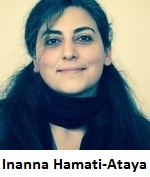
|

